Partition of Palestine, State of Israel and Nehru
By Philip Mudartha
Bellevision Media Network
26 Oct 2023: In my previous article, I referred to Fred Jerome’s book “Einstein on Israel and Zionism”. I read it with my subscription to internet archive which gave me the accurate picture of Einstein as a human-being of very high moral calibre though irreligious. The full texts of Einstein’s letter to Nehru and Nehru’s reply to Einstein are available on pages 243 to 252. I realized that Einstein and Nehru were very similar in outlook and shared the same vision for global order. Both Einstein and Nehru were secular, socialist, pacifist, internationalist and adversary of cold war politics between the West and Soviet camps.
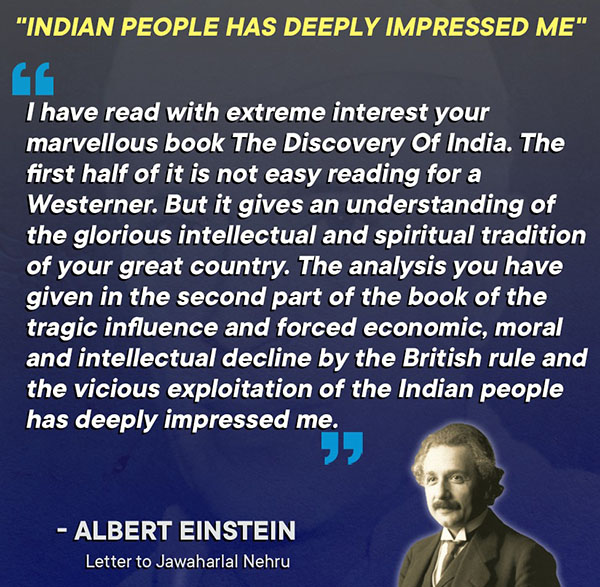
Albert Einstein was an admirer of Nehru and Indian people
Nehru replied to Albert Einstein’s letter on 11th July 1947 after “reading it with care and attention it deserved.”
Nehru thanked Einstein for his appreciation of the decision of India’s Constituent Assembly to abolish untouchability and predicted that it will have sanction of law under a future constitution. “Mahatma Gandhi has laid the greatest stress on the complete liquidation of untouchability and all its ills”, he emphasized.
Nehru expressed India’s “deepest sympathy for the great sufferings of the Jewish people and promised to help them in any way it could”. He noted that India has “rejected completely the racial doctrine which the Nazis and the Fascists proclaimed”.
“India has followed with deep pain and anxiety, the happenings since the rise of Hitler in Germany. India has mourned the horrors which resulted in the death of millions of Jews in the murder machines which were set up in Germany and elsewhere. That was terrible enough, but it was still more terrible to contemplate a civilisation which, in spite of its proud achievements, could produce this horror”, Nehru elaborated referring to the holocaust.
He confirmed that foreign policies of an independent India would be guided by its national interest: “As you know, national policies are unfortunately essentially selfish policies. Each country thinks of its own interest first and then of other interests.” In his letter, Einstein had not asked Nehru to vote in the United Nations General Assembly in favour of the Partition of Palestine. Nehru did not say which way India would vote.
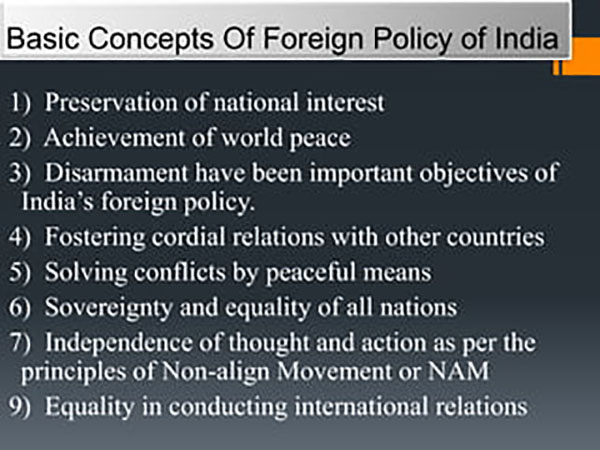
India’s foreign policy goals laid down by Nehru
Nehru explained that the struggle for freedom and the onerous tasks of resolving domestic difficulties are India’s national priorities and not participation in world affairs. In the future, when India is ready to play a progressively more important role based on “adherence to the idealism which has guided our struggle for freedom”, India would “try our utmost to keep up standards of moral conduct both in our domestic affairs and in the international sphere”.
Striking a balanced note, Nehru wrote that “with all our sympathy for the Jews India must and does feel that the rights and future of the Arabs are involved. Can Jewish need, no matter how acute, be met without the infringement of the vital rights of others? Your answer to this question is in the affirmative. Broadly put, many may agree with you but when we come to the specific application of this answer, the matter is not at all simple”.
Nehru expressed his earnest hope that “some kind of an agreement might be arrived at between the Arabs and the Jews without imposition from an outside power against the will of the parties concerned”.
“I confess that while I have a very great deal of sympathy for the Jews, I feel sympathy for the Arabs also in their predicament. In any event, the whole issue has become one of high emotion and deep passion on both sides. Unless men are big enough on either side to find a solution which is just and generally agreeable to the parties concerned, I see no effective solution for the present”, wrote Nehru.
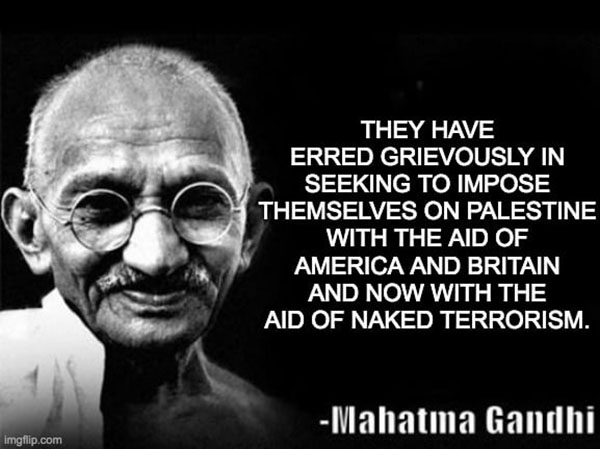
Mahatma Gandhi wrote in Harijan about Jews and Palestine
Unlike our small-minded ego-centric national political leadership of today, Nehru was well-read and kept himself abreast of all international developments including in Palestine. Certainly he had read extracts of Einstein’s speeches and his signed letters published in the western press. He sure was aware that Zionist Politicians like Chaim Weizmann, Ben-Gurion, and Menachem Begin were using Einstein’s name to further their propaganda.
“I have paid a good deal of attention to this problem of Palestine and have read books and pamphlets on the subject issued on either side; yet I cannot say that I know all about it, or that I am competent to pass a final opinion as to what should be done. I know that the Jews have done a wonderful piece of work in Palestine and have raised the standards of the people there, but one question troubles me. After all these remarkable achievements, why have they failed to gain the goodwill of the Arabs? Why do they want to compel the Arabs to submit against their will to certain demands? The way of approach has been one which does not lead to a settlement, but rather to the continuation of the conflict. I have no doubt that the fault is not confined to one party but that all have erred. I think also that the chief difficulty has been the continuation of British rule in Palestine. We know, to our cost, that when a third party dominates, it is exceedingly difficult for the others to settle their differences, even when that third party has good intentions, — and third parties seldom, have such intentions!”
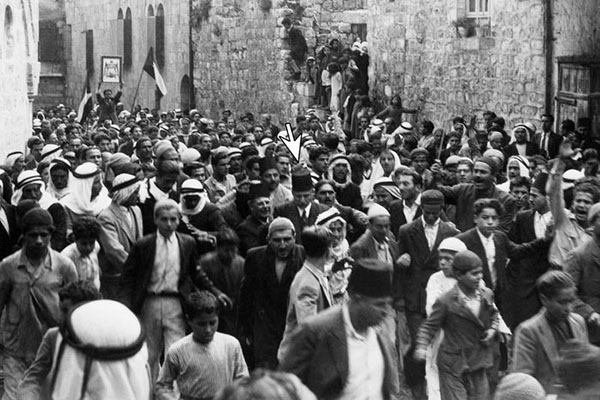
Arabs Revolt against the Britain and Jewish Settlers in 1936
Nehru assured in all earnestness that “I would like to do all in my power to help the Jewish people in their distress, in so far as I can do so, without injuring other people (the Arabs)”.
Then he dwelt with the horrors of Partition of British India and said that “this was not how we had envisaged our freedom. What is most distressing is the background of all these events, the bitterness, the hatred and violence that have disfigured the face of India in recent months. We have a terribly hard task before us, but we shall face it, of course, with the confidence that we shall overcome these difficulties, as we have overcome others in the past”.
Einstein was a socialist, pacifist, internationalist, not nationalist and certainly not a Jewish Nationalist. He had consistently opposed political Zionism and its goal of establishing the Jewish State of Israel in Palestine. He advocated a Jewish Homeland in Palestine where Jews will live side by side with their kinsmen, the Arabs, in a bi-national state. He was a cultural Zionist, not a political Zionist; and hence, opposed the Partition of Palestine into two independent states, with borders, armies and a measure of temporal power. The views of political Zionists prevailed and the UN General Assembly passed its Resolution 181.
When Chaim Weizmann, first President of the State of Israel died in 1952, Einstein was offered the post of President of the State of Israel, Einstein rejected the offer. Also, Einstein did not visit the State of Israel. He was disillusioned with the Zionist political leadership. He was critical of Menachem Begin in particular, the terrorist mastermind of Deir Yassin massacre of unarmed and innocent Arab villagers on 9th April 1948.
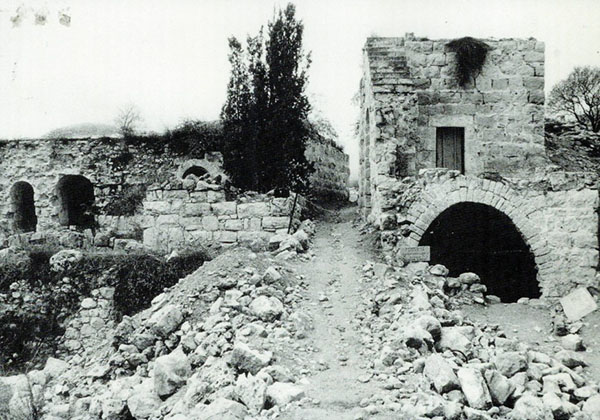
Massacre of Arab civilians in Deir Yassin Village led by Begin
He advocated that Israel should shed its pro-West bias and join hands with statesmen like Nehru, Sukarno, and Tito to strengthen the Non-Aligned Movement.
| Comments on this Article | |
| Roji Mathew, Qatar | Wed, November-15-2023, 9:16 |
| Once Nehru said we would have recognised Israel long ago, because Israel is a fact. We refrained because of our desire not to offend the sentiments of our friends in the Arab countries.Unlike other politician Mr Nehru was a practical politician.His timely decision on several issues like foreign policy,economic policy,social reformation,multi party democracy,non alignment movement etc are really appreciable.His decision to not support and support the israel was poorly based on the political set up at that time and proved that it was successful. | |




 Write Comment
Write Comment E-Mail To a Friend
E-Mail To a Friend Facebook
Facebook Twitter
Twitter  Print
Print 














